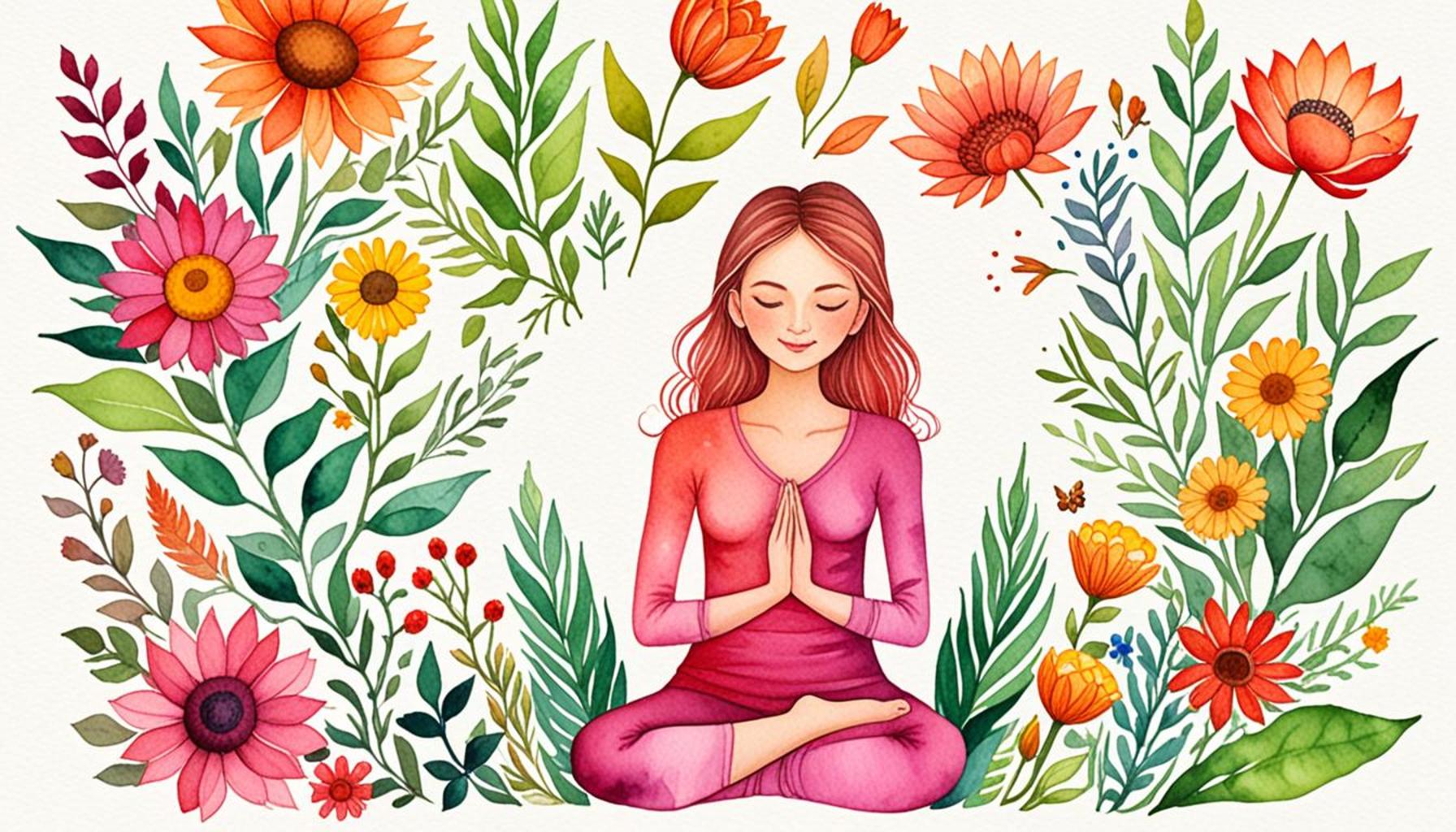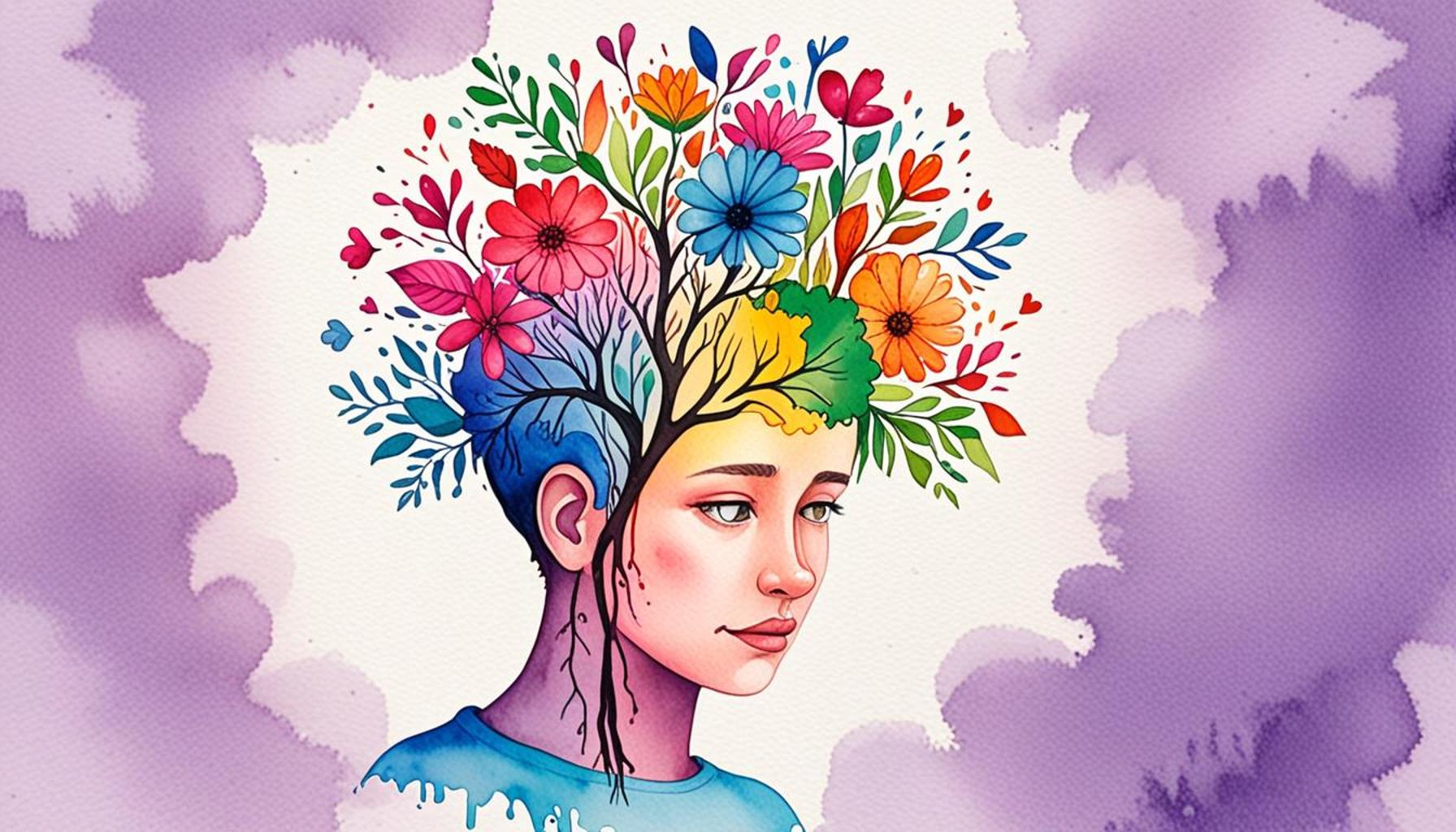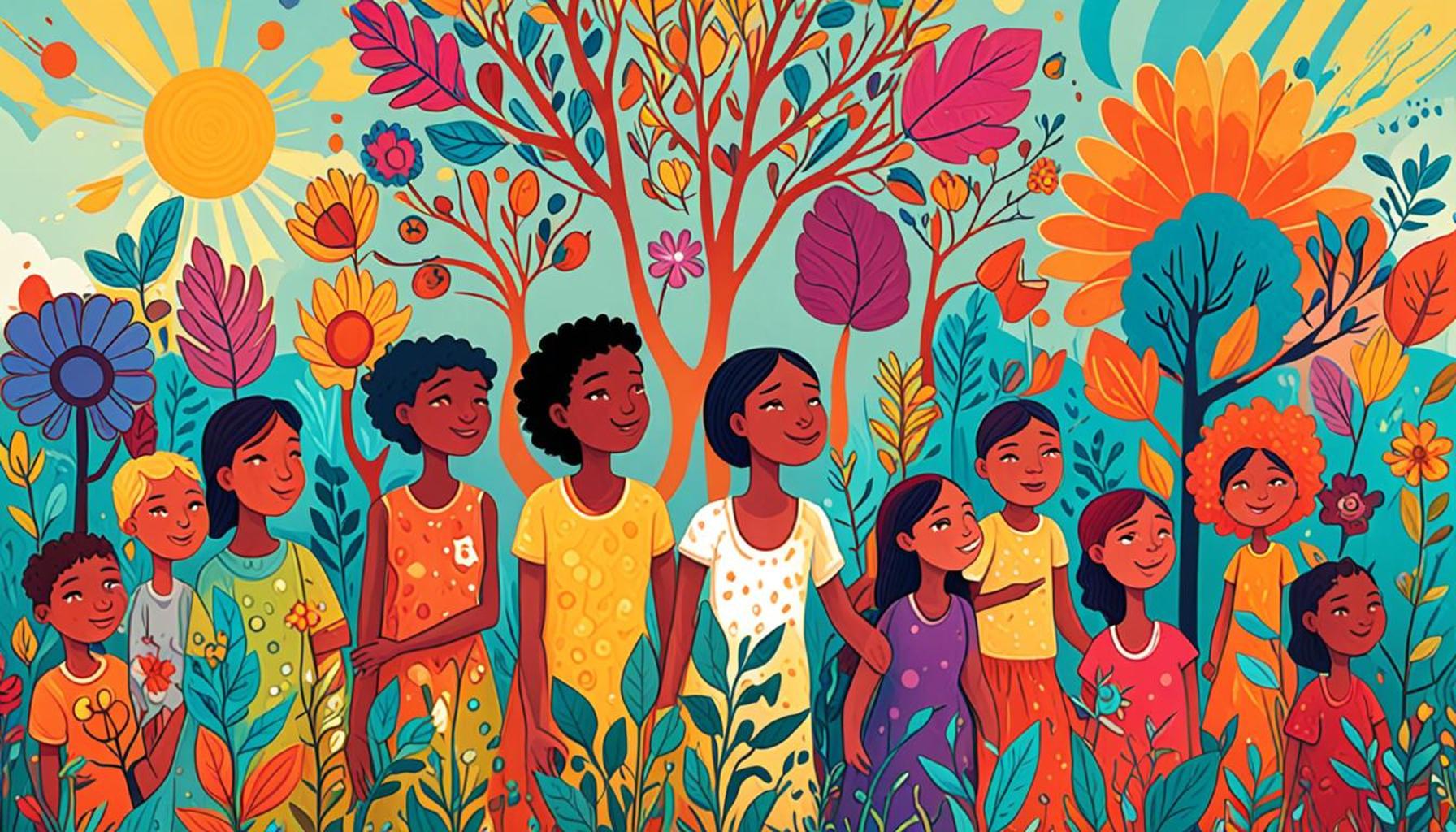Cultivating Emotional Resilience through the Practice of Gratitude and Mindfulness

Building Emotional Fortitude
In a world where challenges abound, the ability to bounce back from adversity is more crucial than ever. Cultivating emotional resilience can significantly enhance our capacity to cope with life’s ups and downs. Two powerful tools to foster this resilience are the practices of gratitude and mindfulness.
Why Gratitude Matters
Practicing gratitude involves recognizing and appreciating the good in our lives, even amidst struggles. This simple yet profound act can lead to transforming our mental landscape. Here are some key benefits that underscore the importance of gratitude:
- Increased positivity and happiness: Studies have shown that individuals who regularly express gratitude tend to experience a higher overall sense of well-being. Acknowledging even small blessings, such as a kind gesture from a neighbor or a delicious meal, can elevate mood and foster a positive outlook on life.
- Stronger relationships: When we express gratitude, it strengthens bonds. In Nigeria, for instance, showing appreciation can deepen connections with family and friends during tough times, facilitating better communication and support systems.
- Reduced stress levels: Gratitude practice has been linked to lower levels of depression and anxiety. By focusing on what we are thankful for, we can shift our attention away from negative thoughts and feelings, which, in turn, helps to lower overall stress.
For many Nigerians, expressing gratitude is intertwined with cultural practices, such as communal gatherings and traditional ceremonies where appreciation is publicly shared, reinforcing social ties and emotional support.
The Role of Mindfulness
Mindfulness encourages being present and fully engaged in the moment. This practice is not limited to a specific culture or belief system; rather, it is a universal technique that many people use to ground themselves. Its benefits include:
- Enhanced focus and attention: In a world full of distractions, being mindful can help individuals concentrate better on tasks, leading to improved productivity in both personal and professional settings.
- Improved emotional regulation: Mindfulness helps individuals understand their emotions more clearly, allowing them to respond to challenges more thoughtfully rather than reactively. This makes it easier to manage feelings of anger or frustration, common in stressful situations.
- Greater self-awareness: Through practices like meditation, individuals can cultivate a deeper understanding of their thoughts and feelings, paving the way for personal growth and self-improvement.
Incorporating mindfulness into daily life can be as simple as dedicating a few minutes to meditation or practicing deep breathing exercises. In Nigeria, traditional practices such as yoga or even quiet moments of reflection can serve as valuable gateways to a more mindful existence.

As we delve deeper into these concepts, numerous practical strategies can be implemented to weave gratitude and mindfulness into our everyday lives. Whether through maintaining a gratitude journal, participating in community discussions, or setting aside moments for meditation, these practices create a foundation for emotional resilience. Ultimately, cultivating these skills not only helps individuals cope with adversity but also equips them to thrive amidst life’s inevitable challenges.
RECOMMENDED: Check out this similar article
Embracing Change through Gratitude
In the face of life’s inevitable changes and uncertainties, gratitude serves as a vital anchor. By consciously recognizing the positives, even when life throws curveballs, we establish a robust framework for emotional stability. This shift in perspective often requires practice, but its results can propel individuals toward a more resilient mindset.
Ways to Foster Gratitude
Integrating gratitude into daily routines doesn’t have to be complex. Here are some practical methods to consider:
- Gratitude Journaling: Engaging in daily writing can be a transformative experience. Setting aside a few minutes every evening to jot down three things for which you are grateful helps in reframing your mindset. It creates a repository of positivity that you can reflect upon during tougher times.
- Verbal Acknowledgment: Expressing appreciation to friends, family, or colleagues can drastically improve interpersonal relationships. A simple “thank you” can create ripple effects, fostering a culture of gratitude within social circles.
- Mindfulness Reflection: As part of a mindfulness routine, take intentional pauses throughout the day to appreciate your surroundings. Whether it’s the laughter of a child or the vibrant colors of nature, recognizing these small joys can uplift your spirit and reinforce a sense of gratitude.
In Nigerian culture, the communal aspect of gratitude often manifests in vibrant festivals and ceremonies, where appreciation is expressed collectively. These gatherings not only serve to celebrate achievements but also act as reminders of the support systems that exist within our communities. This is essential in the hustle and bustle of daily life, as it encourages individuals to appreciate their networks during difficult times.
Mindfulness in Action
Mindfulness, on the other hand, enhances our ability to interact with the world in a conscious manner. It is about being present, which opens the door to greater emotional clarity. By integrating mindfulness techniques into our daily lives, we can better navigate stressful situations. Here are some impactful benefits that mindfulness provides:
- Stress Reduction: Mindfulness practices, such as meditation and focused breathing, have proven to reduce stress levels significantly. Regularly engaging in these practices can lower cortisol levels— the hormone linked to stress— thereby improving mental well-being.
- Improved Resilience: Being fully present allows individuals to observe their thoughts and emotions without immediate reaction. This enhances resilience by providing the space needed to respond thoughtfully rather than react out of impulse.
- Connection with Self: Through mindfulness, individuals can cultivate a deeper understanding of their internal landscapes. This self-awareness is crucial for recognizing triggers that can lead to emotional challenges.
In Nigeria, mindfulness can be integrated through various practices, from traditional forms of meditation found in spiritual settings to moments of quiet reflection after a long day. Embracing these techniques can help individuals balance the demands of modern life while preserving and honoring their emotional wellness.
As we explore the intersection between gratitude and mindfulness, it becomes clear that these practices are not merely fleeting trends; they are essential components in cultivating emotional resilience. By actively engaging in these practices, individuals can enrich their lives and fortify themselves against challenges that arise.
| Aspect | Impact |
|---|---|
| Gratitude Practices | Fostering positive emotions and reducing stress. |
| Mindfulness Techniques | Enhancing focus and promoting emotional regulation. |
| Resilience Building | Developing coping strategies for life’s challenges. |
| Self-Awareness | Promoting a deeper understanding of emotions. |
| Overall Well-Being | Boosting life satisfaction and psychological health. |
The connection between gratitude, mindfulness, and emotional resilience continues to capture the interest of mental health experts and those seeking wellness. Gratitude practices, such as maintaining a gratitude journal, can significantly enhance a person’s outlook by heightening positive emotions and effectively lowering stress levels. Meanwhile, integrating mindfulness techniques, including meditation and deep-breathing exercises, has proven essential in sharpening focus and improving emotional regulation.Furthermore, these practices serve as powerful tools for resilience building, equipping individuals with necessary coping strategies to navigate through adversity. As people become more self-reflective and engaged with their feelings, this enhanced self-awareness leads to a profound understanding of their personal emotional landscapes.Ultimately, when individuals actively engage in these practices, they contribute to their overall well-being, significantly increasing life satisfaction and mental health, an essential area of interest that warrants deeper exploration in our busy and often overwhelming lives.
RECOMMENDED: Check out this similar article
Strengthening Relationships through Emotional Awareness
Another significant aspect of cultivating emotional resilience lies in understanding how gratitude and mindfulness can pave the way for healthier relationships. These practices not only benefit individual emotional states but also create a more supportive and harmonious environment among peers, family, and communities. By nurturing emotional awareness within ourselves and others, we can enhance connectivity and mutual support, which are essential during challenging times.
The Role of Emotional Awareness
Emotional awareness is crucial for recognizing and validating our feelings as well as those of others. Here are a few ways emotional awareness can be cultivated through gratitude and mindfulness:
- Active Listening: Engaging in active listening is a powerful way to show gratitude towards others. By giving our full attention, we acknowledge their experiences and foster deeper connections. When combined with mindfulness, this practice can lead to all parties feeling heard and valued.
- Empathy Development: Practicing gratitude can naturally enhance empathy. When we express gratitude for what we have, we become more attuned to the struggles and joys of others. Daily reflections on our relationships can kindle a genuine interest in the experiences of those around us.
- Conflict Resolution: Mindfulness provides tools for navigating conflicts with grace. Approaching disagreements with a calm and focused mindset allows individuals to communicate more effectively, reducing the emotional charge that can escalate situations.
In Nigeria, the communal structure often found in families and close-knit neighborhoods offers a unique social ecosystem to practice these principles. The strength of relationships can shine through traditional storytelling gatherings or simple family dinners, where gratitude for shared experiences is frequently expressed. These moments serve as fertile ground for emotional awareness, aiding individuals in developing resilience through shared understanding and support.
The Impact of Gratitude on Mental Health
Studies consistently reveal that gratitude plays a significant role in enhancing mental health. The practice of incorporating gratitude into everyday life has measurable impacts, including:
- Enhanced Mood: Regular expressions of gratitude can lead to increased levels of happiness and reduced feelings of depression. It acts as a natural antidote, fostering a positive outlook on life.
- Better Sleep: Many individuals report improved sleep patterns when they engage in gratitude practices. Reflecting on what one is thankful for before bed can promote relaxation, making it easier to drift into a peaceful slumber.
- Increased Life Satisfaction: Studies have shown that individuals who regularly practice gratitude report higher levels of life satisfaction and optimism—two critical components that bolster resilience.
In response to challenges, creating a ritual of gratitude within Nigerian homes—be it through evening prayers or family discussions about positive events of the day—can serve to uplift those involved and strengthen familial bonds. Such practices not only enhance individual emotional resilience but also build a collective strength among families facing uncertainties.
As we delve into the interconnectedness of gratitude and emotional awareness, it becomes evident that these practices are not just benefactors of individual growth but critical tools for community cohesion and support. Embracing them lays a thoughtful foundation for navigating the complexities of relationships and adversity alike.
RECOMMENDED: Check out this similar article
Conclusion: The Transformative Power of Gratitude and Mindfulness
In today’s ever-changing and often overwhelming world, cultivating emotional resilience has become an essential skill for individuals and communities alike. The intertwined practices of gratitude and mindfulness serve as powerful tools to foster this resilience, enhancing emotional awareness and strengthening interpersonal relationships. By intentionally embracing gratitude, we nurture a sense of appreciation for our experiences and the people in our lives, which can greatly uplift our mood and overall mental health.
Moreover, mindfulness teaches us to remain present, equipping us with the ability to navigate life’s challenges without being consumed by negativity. Both practices encourage active listening, empathy development, and conflict resolution—skills that are particularly invaluable in the vibrant Nigerian context, where community and kinship are pivotal. Shared rituals of gratitude, whether through communal gatherings or family discussions, can transform emotional landscapes, fostering collective strength amidst adversity.
As we recognize the impact of gratitude on our mental health—improving sleep, increasing life satisfaction, and enhancing mood—we invite individuals to explore these practices deeply. Integrating gratitude and mindfulness into daily routines can build a more resilient personal and communal fabric. Ultimately, tapping into these fundamentally human experiences not only shapes individual emotional landscapes but weaves a stronger tapestry of support within families and communities, paving the way for a brighter, more connected future.


